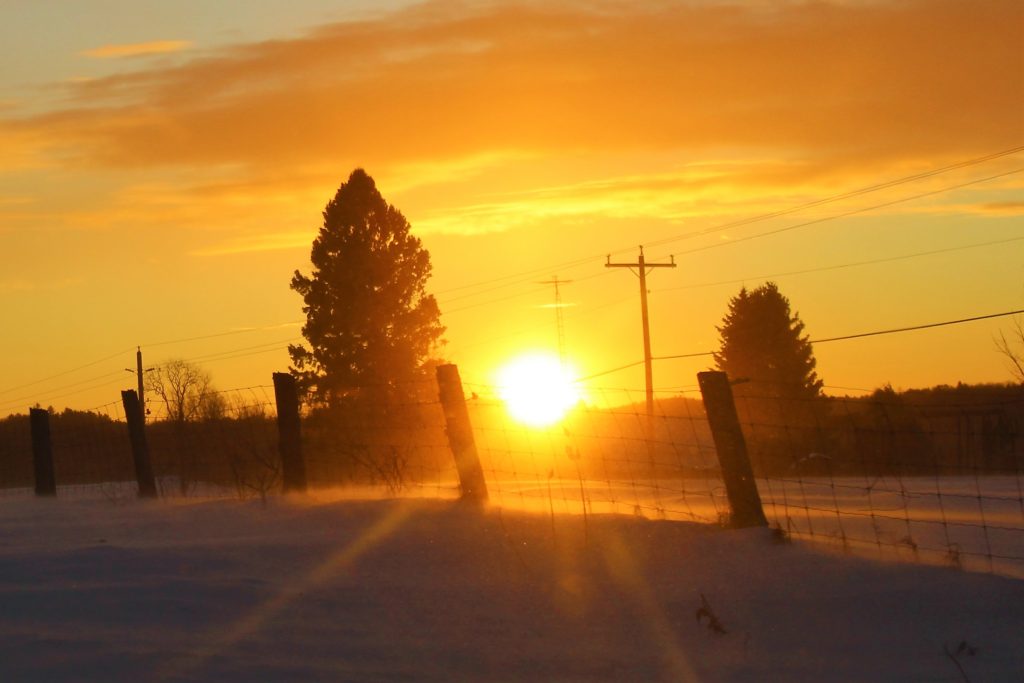Environmental protection and the letter W

Feb. 19, 2019
By Nate Smelle
If there is a more romantic way to spend one's Valentine's Day evening than listening to Ontario's environmental commissioner Dr. Diane Saxe report on the state of the province's water, wetlands, woodlands, biodiversity and environmental protection, I have yet to discover it.
Judging by the struggle to find a parking spot at the Huntington Veterans Community Hall in Ivanhoe last Thursday night, I am not the only one in Hastings County defining a romantic evening in this way.
Speaking with one of the volunteers in the lobby I found out the event was held in Centre Hastings to provide people from all corners of the county an equal opportunity to hear the commissioner share her insights on what is and is not being done in terms of environmental protection by the provincial government.
Scanning the crowd of 100+ for familiar faces as I searched for a seat, I noticed at least a couple dozen of the usual suspects that commonly attend these type of gatherings. With such a rare opportunity to hear directly from Ontario's guardian of the Environmental Bill of Rights before her office is eliminated in the next few months, I was surprised to see that there was but one elected official from all Hastings County in attendance.
Nevertheless, despite the shortage of elected representatives in the room, Saxe didn't hold back from lambasting the provincial governments over the past three decades for their lack-lustre performance protecting the environment. What I found most compelling about the information generously dished out by Ontario's leading environmental watchdog on this night was how interdependent the health of each of the three “W”s she spoke about, truly are. In a nutshell, Saxe explained that we need wetlands and woodlands to filter and retain the water that sustains our existence. Furthermore, the wetlands and woodlands need us to help protect the biodiversity these vital area's rely on to sustain the life-giving ecosystem services they produce to sustain a healthy environment.
Saxe gave hope to the army of nature lovers by encouraging them to get more involved as citizen scientists. Indicating that more cuts are on their way, she said people who care about the environment can make a difference by employing their skills, knowledge and passion as naturalists to assist in monitoring species in Ontario. This, she said, is a crucial first step in helping to protect biodiversity, and in turn Ontario's water, wetlands and woodlands.
Having participated in several citizen science studies throughout Ontario over the past two decades, Saxe's clarion call resonated strongly with me. Every time that I have counted bird species, monitored butterfly migrations, collected scat or participated in a bio-blitz, I have found that my connection with nature has grown.
For me, what I have valued most about my experience as a citizen scientist is that it demands a slower more attentive interaction with the environment we are all a part of. As the eco-philosopher/activist Edward Abbey once said “A man on foot, on horseback or on a bicycle will see more, feel more, enjoy more in one mile than the motorized tourists can in a hundred miles.”
What I have also noticed through my work as a citizen scientist, is that the more I get to know nature, the more I feel inclined to help protect it. When our government takes a huge step backwards by weakening and eliminating environmental protections, that is when we need to take an even bigger step forward by standing up for our rights, and the rights of future generations.
|
